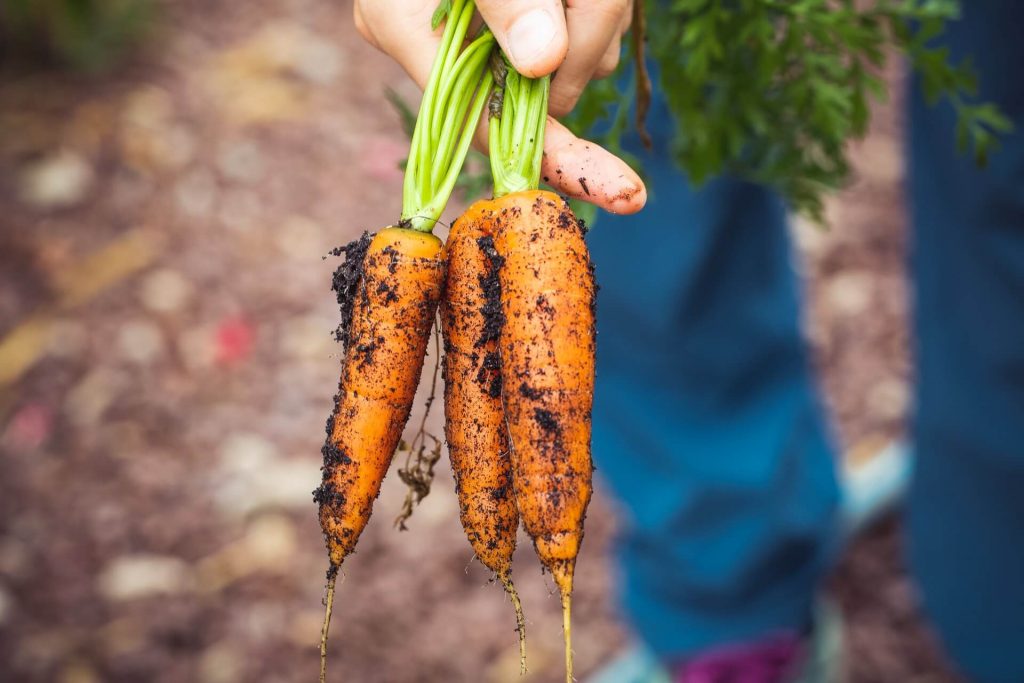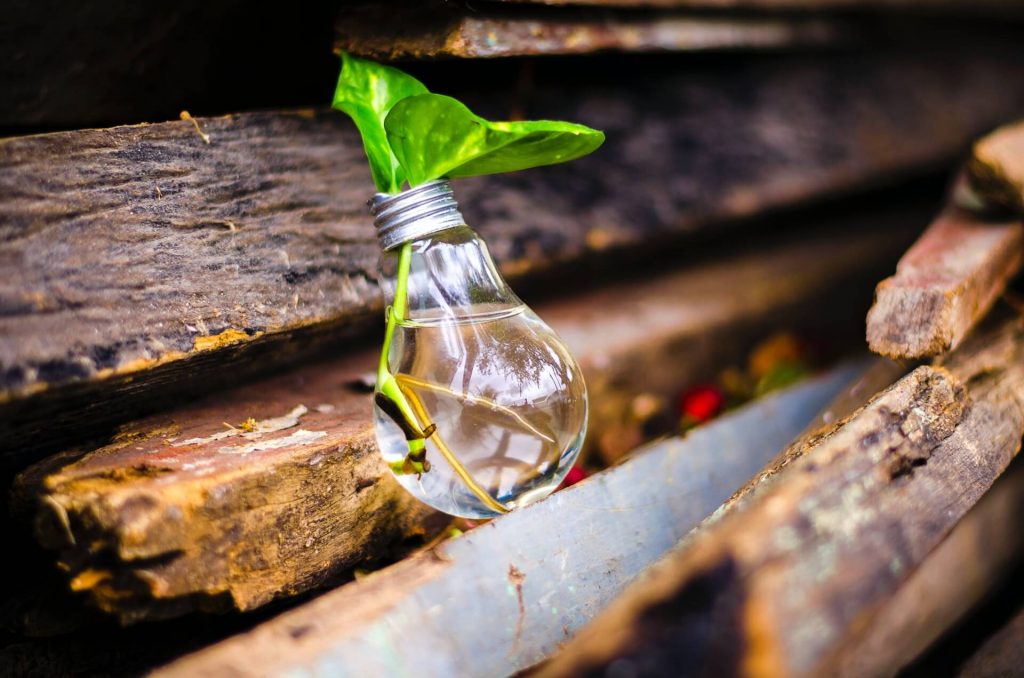I sometimes have mixed feelings about the term zero waste. Yes reducing waste is great, but I sometimes feel that zero waste makes it sound like there’s no wiggle room at all. As if you have to be the perfect waste-free environmentalist in order to participate.
But zero waste and sustainability aren’t meant to be like that at all. They’re meant to be inclusive and encouraging of all actions that work toward zero waste and sustainable goals.
With that in mind here are my 60+ quick tips for imperfect zero waste living. If you can do them all, great. If you can only do a few that’s great too!
I’ve broken these tips up into sections so fee free to skip down through using the links below.
- Shopping
- Food & Drink
- Restaurants & Café’s
- Repair, Reuse & Repurpose
- Energy, Water and Emissions
- General Tips
Note: These tips are short and snappy but I’ve included links further down the post to some of my more in depth articles if you want to learn more about any of the topics covered in this post.
Shopping

1. Buy Less, Use What You Have – Learn to make do with a little less and make the most of products you already own. Fewer purchases = less waste.
💡 Click here for more in-depth info on Sustainable Shopping!
2. Buy Quality Long Lasting Products – Go for quality over quantity to save money in the long run.
3. Buy Second Hand – Budget friendly and zero waste, hand me downs have never looked better! Buy and donate to support the second-hand market.
4. Buy Local – Less packaging, fewer preservatives, reduced emissions. Not to mention you’re supporting your community!
5. Avoid Impulse Buying – Do you really need another pair of jeans? Or are you just buying them because they’re on sale? Check your buying habits both in person and online.
💡 Click here for more ways to reduce your online shopping impact!
6. Borrow Before You Buy – Owning is overrated, get a lend from your local library, rental organisation or from friends and family.
7. Invest in Reusable Products – Reusable water bottles, keep cups, flasks, razors, batteries, shopping bags, bathroom products etc. Ditch the single use junk!
💡 Check out my sustainable swaps list for more reusable alternatives.
8. Look for Multi-functional Products – Why buy two products when one will do both jobs?
9. Support Eco Businesses – Do your research, support responsible companies!
10. Gift Experiences – Move away from material gifts unless you know it’ll be used. Concert and sporting event tickets, group activities and outdoor experiences are great options.
11. Give Homemade Gifts – It’ll be more personal, and you can try use materials you already own to make a super green gift!
12. Avoid Fast Fashion – Reduce fashion waste by buying clothes for the long run, not just for a month or two. If you can afford a longer lasting items, it’ll save you money down the line.
💡 See my post on eco-friendly fashion for more ways to keep your wardrobe waste-free!
13. Refuse Free Stuff – Promo products, flyers, posted newsletters and physical bills are a no-no. But a “No Junk Mail” sign is a must!
14. Avoid Retail Therapy – Enjoy your shopping, but only when you need to shop!
15. Beware of Greenwashing – Just because it says “eco-friendly” doesn’t mean it is. Do your research!
16. Avoid Excessive Packaging – If it’s covered in unnecessary plastic, try looking for more minimally packaged alternatives.
17. Go for Recyclable Packaging – Glass jars, rigid cardboard and reusable hard plastic are all good options. Anything but soft and flimsy single use plastic.
18. Don’t Ask for a Receipt – The plastic coating makes them unrecyclable!
Food & Drink

19. Visit Food Markets – Find fresh, organic, local, minimally packaged food at budget prices!
20. Buy in Bulk – One big bag creates less waste than 10 small ones. See if your area has a zero waste shop or bulk store so you can refill your own containers.
21. Cook Your Own Meals – Ready-made meals and takeaways are wasteful. Buy ingredients in bulk and prepare your own food to reduce waste and eat healthier!
22. Plan Your Meals – Avoid overbuying by planning your meals ahead of time.
23. Keep Leftovers – Food waste is a huge problem so try to use all of what you make or buy. Have a leftovers night once a week to give yourself a break from cooking!
💡 Find out more with my sustainable eating guide here!
24. Eat “Ugly” Foods – So much food goes tow waste purely for superficial reasons. But weird looking produce will nearly always taste the exact same as the more regular stuff.
25. Store Food Correctly – Does it belong in the fridge, freezer or pantry? And how long will it keep?
26. Ditch the Coffee Filters and Tea Bags – A French press and a tea strainer are the way to go!
27. Grow Your Own – Start with some windowsill herbs or jump right into your own little vegetable patch! Visit GIY for some beginners gardening tips!
28. Join a Community Garden – A more social and space saving alternative to your own patch.
29. Compost Food Scraps – Create plant food for your new garden, it’s easier than it looks!
Restaurants & Cafes

30. Finish What’s on Your Plate – Waste not want not and all that.
31. Box Your Leftovers – Got a small appetite, better bring a big box for leftovers!
32. Ask for Smaller Portions – Know your own appetite and save yourself the hassle.
33. Bring Your Own Reusable Cup/Flask – Much nicer than the disposable versions. Some cafes will even give a discount if you bring your own cup.
💡 Find more budget sustainability tips here!
34. Ditch the Straw – You can make do without it, I believe in you!
35. Support Small Local Cafes & Restaurants – Buy from the little guy, the big chains will survive.
Repair, Reuse & Repurpose

36. Repair Before You Replace – Dust off your DIY tools and sewing supplies or see if it’s affordable to fix. Replacing is a last resort.
37. Reuse Whenever Possible – It says disposable but can you reuse it? Think plastic packaging, glass jars, card, paper and “single use” products.
38. Upcycle Before You Recycle – See if you can repurpose the materials and make something useful yourself.
💡 Here are 10 easy upcycling ideas for you to check out!
39. Recycle Properly – Learn what is recyclable. Clean and dry before you throw stuff in the recycle bin. Leaving it dirty can contaminate the whole lot.
40. Recycle Less Not More – The mantra goes reduce, reuse then recycle so try the first two before you throw stuff in the recycle bin.
41. Fully Use Before You Bin – Get the most out of your products. Write on both sides of the page, use every last bit of that soap bar, you get the idea.
Energy, Water and Emissions

42. Drive Less – Use public transport, walk, cycle, or carpool instead.
💡 Check out my Green transport and travel tips here!
43. Don’t Over-rely on Heating and Air Con – Open windows and put on layers to cool down and warm up.
44. Only Put on Full Washes – Half-filled dishwashers and washing machines waste both water and electricity.
45. Only Wash Clothes When Dirty – If you’ve only worn it for two hours, it’s probably not dirty. Save energy, save water and make your clothes last longer.
46. Air Dry Everything – Hang clothes on the washing line or clothes horse. Use a drying rack for the dishes. And air or towel dry your hair!
47. Use Eco Mode – Invest in eco efficient tech or devices with power saving features.
48. Unplug or Switch Off – Turn lights, appliances and devices off properly, don’t just leave on standby.
💡 Click here to find more ways to save on your energy bill!
49. Turn Off the Tap – Fill up a basin for washing, turn off the taps while brushing your teeth and washing your hands.
50. Take Short/Cold Showers – Fairly self-explanatory, take cold showers if you find yourself staying in too long.
51. Don’t Waste Water – If you fill a glass/bottle – finish it, don’t just pour it out.
52. Collect Rainwater – Use it for watering plants and outdoor power washing.
General Tips

53. Get Outside – A day spent out in nature is a low impact day well spent.
54. Use Natural/Homemade Cleaning Products – Do you really need 10 different spray bottles full of chemicals?
55. Use Correct Bins – Putting waste in the wrong bins can create even more waste due to contamination.
56. Go Paperless – Print less, take notes digitally, use that e-reader you got for Christmas. Paper isn’t a renewable product!
57. Take Care of Your Belongings – A bit of TLC can be the difference between replacing something every year vs replacing it every 3-5 years. Think clothes, technology, basically all the things you like shopping for!
58. Find Zero Waste Pet Products – Sustainably sourced pet food and eco-friendly animal accessories are out there, but DON’T go forcing your dog/cat to be vegetarian!
59. Litter Picking – There’s nothing more satisfying than clearing up your own community.
💡 Click here to read my post on eco-friendly hobbies and skills!
60. Join Local Zero Waste Groups – Get the best local info and find people with the same sustainable mindset as you!
61. Spread the Word – Let people know about zero waste and explain that it’s not as scary as it sounds. Even doing one of the things on this list is a great start.
💡 Click here for some great reasons to get involved in sustainability!
As Anne Marie-Bonneau says, “We don’t need a handful of people doing zero waste perfectly. We need millions of people doing it imperfectly.”





